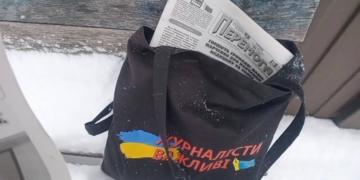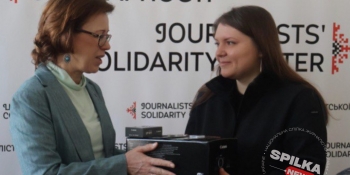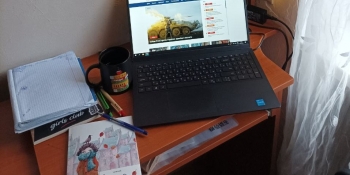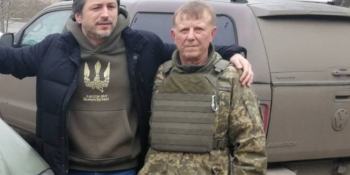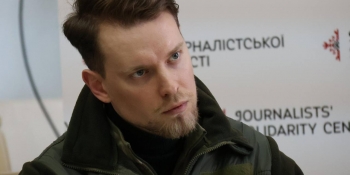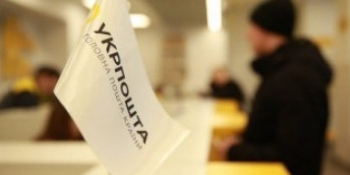The other day, a round table was held at the Journalists’ Solidarity Center of the National Union of Journalists of Ukraine (NUJU) in the city of Dnipro, where experts discussed a number of important issues. In particular, it was dedicated to sending female journalists to the conflict zone.
Journalists’ attention was drawn to recommendations from the military, psychologists, as well as colleagues who already have experience in business trips to the area of hostilities. Heed the advice and remember the main thing: no journalistic material is worth your life and health.
• First of all, answer the question is if you are psychologically ready for a business trip to a conflict zone. To do this, talk to colleagues who already have a similar experience. Understand that you may see blood, death, come under fire, etc.
• Be in constant contact with the press officer or the person responsible for communication with the media. Do not hesitate to clarify the details in advance, and ask questions.
• Prepare physically. Take part in airsoft or paintball competitions.
• Select protective equipment according to size. Body armor and a helmet not only protect you but also affect the body, can cause spinal injuries, etc. Take care of preparing a first-aid kit, and familiarize yourself with the basics of first-aid provision.
• Clothes and shoes should be comfortable, without glitter or jewelry.
• Special attention is paid to military terminology. Consider, the military have their own superstitions and cautions. You should know the difference in basic military concepts. In particular, how do the Armed Forces differ from the National Guard and the like?
• Prepare questions in advance, they should be competent, clear, and understandable both to you and to the person you are conducting a dialogue with. If you ask inappropriate questions, you will get the relevant answer or will be left with the question open. With your incompetence, you will only lose the friendly attitude of the military.
• Prepare for covering several types of materials (photo reportage, interview, etc.). One of the types may not be allowed to the audience due to a number of reasons: a change in the situation at the front, the death of the characters from the publication, etc.
• Consider that the military spends its time communicating with the media. Therefore, prepare responsibly, and do not ask for information that is known to everyone and that is easy to find on the Internet.
Call the Dnipro Journalists‘ Solidarity Center – 050 919 8479 (Natalia Nazarova, the coordinator of the Dnipro Center), Address: 8, Starokozatska Street.
As earlier reported, Journalists’ Solidarity Centers are an initiative of the NUJU implemented with the support of the International and European Federations of Journalists, as well as UNESCO. The initiative is aimed at helping media representatives working in Ukraine during the war. The centers operate in Kyiv, Lviv, Ivano-Frankivsk, Chernivtsi, Zaporizhzhia, and Dnipro and provide journalists with organizational, technical, legal, psychological, and other types of assistance.
UNESCO is the United Nations Educational, Scientific, and Cultural Organization. It contributes to peace and security by promoting international cooperation in education, sciences, culture, communication, and information. UNESCO promotes knowledge sharing and the free flow of ideas to accelerate mutual understanding. It is the coordinator of the UN Action Plan on the Safety of Journalists and the Issue of Impunity, which aims to create a free and safe environment for journalists and media workers, thus strengthening peace, democracy, and sustainable development worldwide. UNESCO is working closely with its partner organizations in Ukraine to provide support to journalists on the ground.
The designations employed and the presentation of material throughout this digest do not imply the expression of any opinion whatsoever on the part of UNESCO concerning the legal status of any country, territory, city, or area or its authorities, or concerning the delimitation of its frontiers or boundaries.
The authors are responsible for the choice and the presentation of the facts contained in this digest and for the opinions expressed therein, which are not necessarily those of UNESCO and do not commit the Organization.
NUJU’s Journalists’ Solidarity Center in Dnipro





